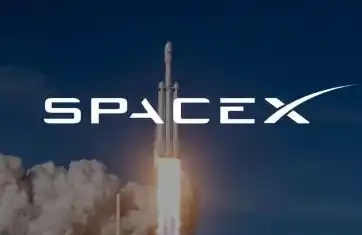Algorithmic stablecoin year-end review: This year was difficult due to the collapse of UST
Original title: " Suanwen Year-end Review: This year was difficult due to the collapse of UST "
Original author: Ignas, DeFi Research
Original translation: DeFi Tao
Due to the collapse of UST, 2022 was a difficult year for algorithmic stablecoins.
According to DefiLlama data, as of today, Suanwen's market value is only US$2.36 billion, accounting for only 1.6% of the total market value of stablecoins.

First, let's briefly explain what algorithmic stablecoins are. UST issues $1 worth of stablecoins by depositing $1 worth of unstable assets.
For Terra, it mints 1 UST with $1 worth of LUNA. If the UST price is below $1, anyone can buy UST at $1 to mint LUNA, and then sell LUNA for a profit.
This model is capital-efficient: when demand for UST increases, it promotes buying pressure and price of LUNA.
When the price of LUNA rises, the amount of LUNA required to mint 1 UST decreases.
And during a drop in demand, the process is reversed, which ultimately led to the collapse of the UST peg.
Currently, Deflama lists a total of 20 algorithmic stablecoins.
Terra’s UST Classic remains the third largest token with a market cap of $202 million, ranking 136th largest among all tokens!
Despite trading below the peg at $0.02, USTC is still listed on Binance, OKx, Kraken, and other exchanges.

Tron’s USDD and Wave’s USDN are the only two UST stablecoins that use their native token as collateral. Although both trade below the peg and are not (anymore) purely staking stablecoins.

Tron says USDD is collateralized by TRX, BTC, USDT, and USDC, with a collateralization ratio of 201%.
However, USDT is minted only with TRX, and only by 8 Tron DAO members (Alameda is one of them).
USDD was last issued on July 17th, and its market cap has not changed since then.

Wave’s USDN has experienced 4 major depeggings, with the worst one happening now.
USDN has been struggling to maintain its peg to $1 as it is no longer backed by 100% of WAVES collateral.
As for why it’s struggling? Check out the following Thread, and follow @YouAreMyYield for more updates.

Compared with the stablecoins mentioned above, Celo's CUSD is pretty good.
CUSD's collateral ratio is 50% CELO, and the rest is BTC, ETH, stablecoins, and MCO 2 Token's carbon credits. CUSD's collateral is stable, but its market cap and trading volume are low: $42 million and $1.2 million, respectively.

In terms of market capitalization, FRAX is a true leader in the category with its $1 billion market cap.
FRAX is distinguished by some of its algorithmic models (see the following Thread):
Capital-efficient minting
Supports Curve, Convex, etc.
Built-in Fraxlend and Fraxswap
Automated market operations facilitate supply

More innovation and experimentation in the field are brought by UXD, BEAN and DEI.
UXD uses delta-neutral position derivatives to maintain the peg. For example, when $1 SOL is deposited, the protocol opens a short position to earn the funding rate and distributes it to UXD holders.
BEAN is not a stablecoin backed by collateral, but credit-backed, and its market cap is currently $32 million. It has 3 Tokens (Beans, illiquid Stalk & Seeds) connected to each other to keep the price of BEAN at $1, and it has successfully maintained it. (For more information about BEAN, see the following tweet)

DEI is a fractional reserve stablecoin used within the derivatives ecosystem of DEUS Finance DAO. Its market cap is only $22 million, which is small, but it is interesting. As @rektdiomedes said, "Think of it as TERRA/LUNA + synthetic assets + oracles, all in a supraphysiological dose of DeFi testosterone."
Two algorithmic stablecoins decided to voluntarily shut down this year.
FEI raised $1.3 billion in 2021 to build a decentralized stablecoin.
FEI is backed by crypto assets "owned" by the protocol, but as DeFi yields decrease and risks increase, the DAO decided to shut down the algorithm. (See the tweet below)

The second one is Near's USN.
USN was just launched 8 months ago as an algorithmic stablecoin.
After the collapse of UST, USN v2 transitioned to minting USN with USDT. However, due to double minting, a "$40 million collateral gap" appeared, leading to the closure of the project.

Overall:
The market value of algorithmic stablecoins has dropped by 90%
There are no pure UST-type algorithmic stablecoins in the market
Most of the current algorithmic stablecoin projects are low-market-cap niche products
At least two projects (USDN, USDD) are struggling to maintain the peg
Two projects (USN, FEI) have been shut down.
At this stage, algorithmic stablecoins do not pose any threat to any major fiat-backed stablecoins, or even to over-collateralized stablecoins.
Original link
Welcome to join the official BlockBeats community:
Telegram Subscription Group: https://t.me/theblockbeats
Telegram Discussion Group: https://t.me/BlockBeats_App
Official Twitter Account: https://twitter.com/BlockBeatsAsia
 Forum
Forum OPRR
OPRR Finance
Finance
 Specials
Specials
 On-chain Eco
On-chain Eco
 Entry
Entry
 Podcasts
Podcasts
 Activities
Activities









